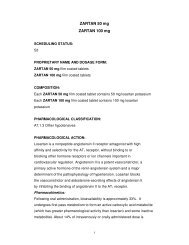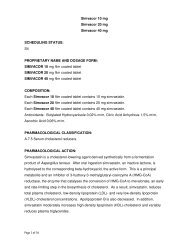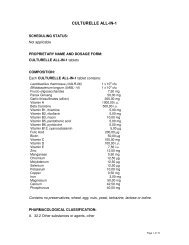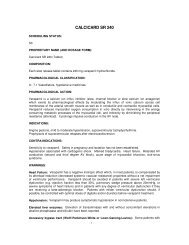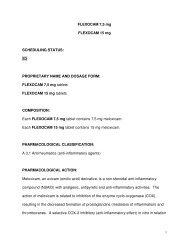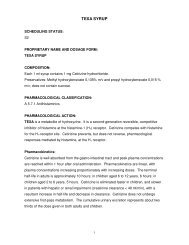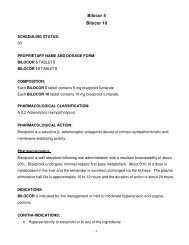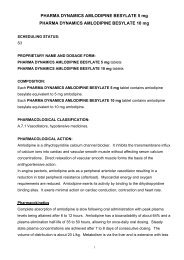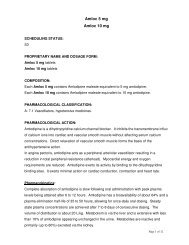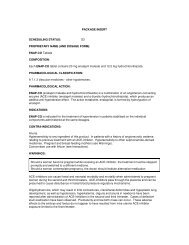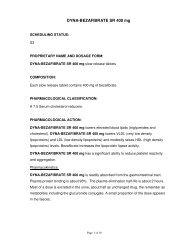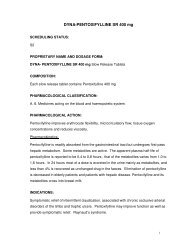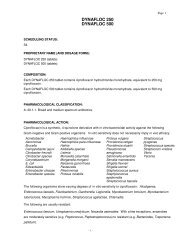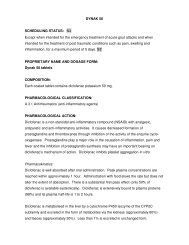LISORETIC 10/12,5 tablets LISORETIC 20/12,5 tablets ...
LISORETIC 10/12,5 tablets LISORETIC 20/12,5 tablets ...
LISORETIC 10/12,5 tablets LISORETIC 20/12,5 tablets ...
Create successful ePaper yourself
Turn your PDF publications into a flip-book with our unique Google optimized e-Paper software.
creatinine, usually reversible upon discontinuation of therapy, have been seen. This is<br />
especially likely to occur in patients with renal insufficiency.<br />
Some hypertensive patients with no apparent pre-existing renal disease have developed<br />
increases in blood urea and serum creatinine when lisinopril has been given<br />
concomitantly with a diuretic. If this occurs during therapy with <strong>LISORETIC</strong>, it should be<br />
discontinued. Reinstitution of therapy at a reduced dosage may be possible: or either of<br />
the components may be used alone as appropriate.<br />
Haemodialysis<br />
The use of <strong>LISORETIC</strong> is not indicated in patients requiring dialysis for renal failure.<br />
Anaphylactoid reactions have been reported in patients undergoing haemodialysis<br />
procedures with certain dialysis membranes (e.g. with the high-flux membranes AN 69)<br />
and concurrent treatment with an ACE-inhibitor. Consideration to the use of a different<br />
type of dialysis membrane or a different class of antihypertensive agent should be given<br />
in these patients.<br />
Hepatic Disease<br />
Caution should be exercised when thiazides are used in patients with hepatic impairment<br />
or progressive liver disease, as minor alterations of fluid and electrolyte balance may<br />
precipitate hepatic coma in these patients.<br />
Surgery/Anaesthesia<br />
In patients undergoing major surgery or during anaesthesia with agents that produce<br />
hypotension, lisinopril may block angiotensin II formation secondary to compensatory<br />
renin release. Should hypotension occur, and is considered to be due to this mechanism,<br />
it can be corrected by volume expansion.<br />
Metabolic and Endocrine Effects<br />
Thiazide diuretics may impair glucose tolerance. Dosage adjustment of antidiabetic<br />
agents, including insulin, may be required.<br />
Decreased urinary calcium excretion caused by thiazides may result in intermittent and a<br />
slightly raised serum calcium concentration. Should marked hypercalcaemia occur, it<br />
may be evidence of underlying hyperparathyroidism. <strong>LISORETIC</strong> therapy should be<br />
discontinued before carrying out tests for parathyroid function (see Interactions).<br />
Increased cholesterol and triglyceride levels may be a result of thiazide diuretic therapy.<br />
- <strong>12</strong> -



